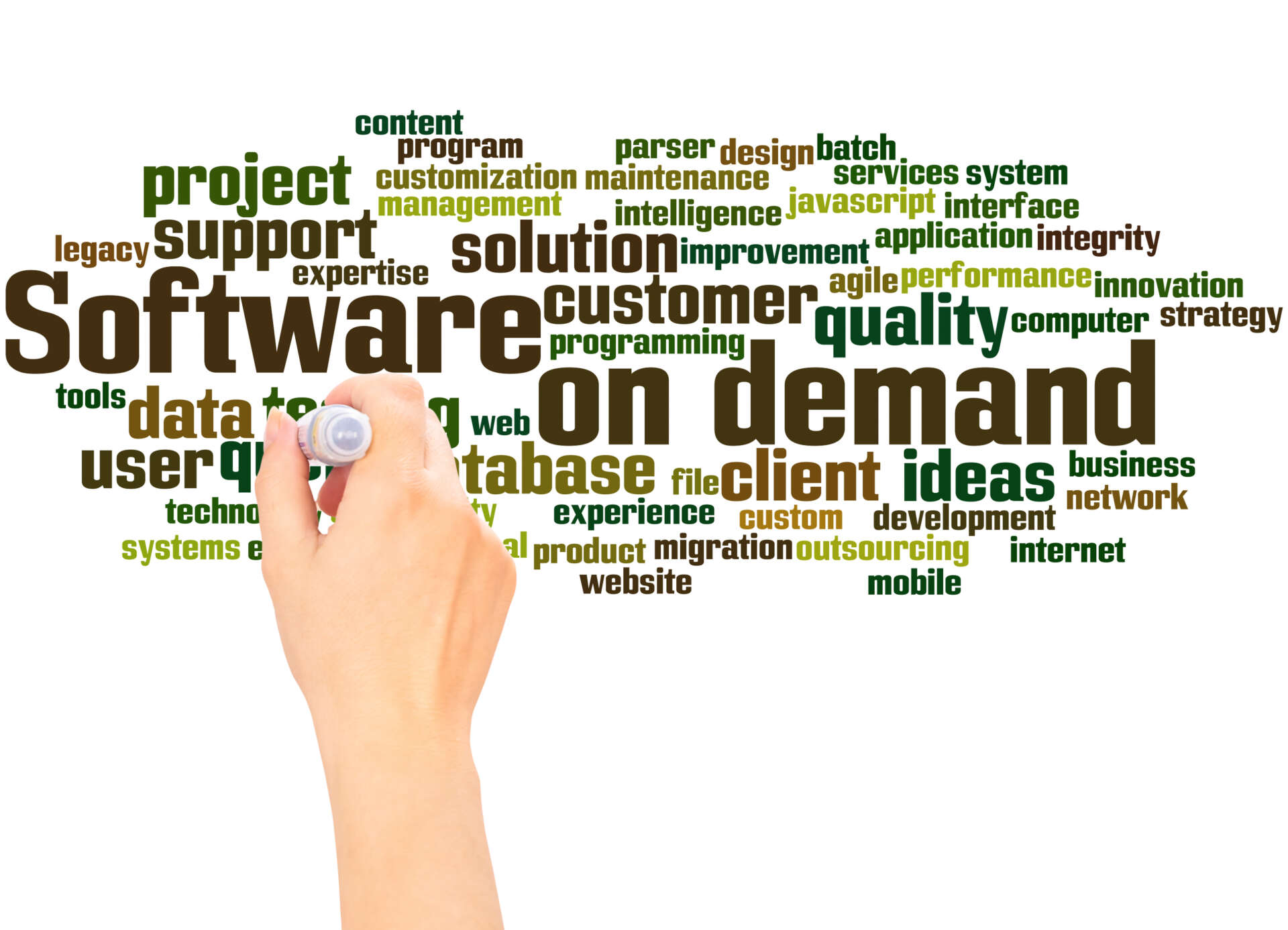The Essential Role of CMS in Your Digital Strategy
In today’s fast-paced digital landscape, a robust online presence is non-negotiable for business success. At the heart of every effective website lies a Content Management System (CMS), the fundamental software that empowers you to create, manage, and publish digital content without needing to write complex code. As we look towards the future, understanding the CMS market share and identifying the Best and Most Popular CMS Platforms in 2025 is crucial for any organization aiming to thrive online.
A well-chosen CMS acts as the backbone of your digital operations, streamlining everything from content updates to e-commerce transactions. It’s not merely a tool for posting articles; it’s a strategic asset that impacts your operational efficiency, user experience, and overall digital marketing efforts. For businesses like Idea Forge Studios, specializing in web design and e-commerce solutions, the right CMS is paramount for delivering high-performance, scalable, and secure websites to clients.
How to Select the Perfect CMS for Your Business Needs
Choosing the ideal CMS can feel daunting given the multitude of options available. However, a structured approach, focusing on your specific requirements and strategic goals, can simplify the decision-making process. Here are key factors to consider:
- Ease of Use: For teams without extensive technical expertise, a user-friendly interface with drag-and-drop functionality and intuitive content editing is vital. This reduces reliance on developers for day-to-day content management.
- Customization Options: Your CMS should offer flexibility to match your unique brand identity and design preferences. This includes a wide array of themes, templates, and the ability to extend functionality through plugins or custom code.
- Scalability and Growth: Consider whether the CMS can grow with your business. Can it handle increasing traffic, larger content volumes, and new functionalities as your needs evolve? A future-proof CMS avoids costly re-platforming down the line.
- Integrations: Assess how well the CMS integrates with other critical business tools, such as CRM systems, marketing automation platforms, and analytics tools. Seamless integration streamlines workflows and enhances data insights.
- Security & Compliance: With rising cybersecurity threats and data privacy regulations, a CMS with robust security features and a strong track record of addressing vulnerabilities is essential. Look for features like multi-factor authentication, encryption, and regular updates.
- Support & Community: A strong support system, whether through dedicated customer service or an active community forum, is invaluable for troubleshooting and finding solutions to common issues.
Ultimately, the best CMS for your business aligns with your team’s technical capabilities, budget, and long-term digital strategy. It’s not about choosing the “most powerful” but the “most appropriate” for your unique blueprint.
Best and Most Popular CMS Platforms in 2025
As we navigate 2025, several CMS platforms continue to dominate the market, each offering distinct advantages tailored to various business models and needs. This year, the landscape is heavily influenced by demands for enhanced user experience, operational efficiency, and advanced personalization capabilities.
According to recent reports, market shares continue to reflect the enduring popularity and adaptability of certain platforms. For instance, WordPress maintains a significant lead in the overall CMS market, powering over 40% of all websites globally. Its open-source nature, extensive plugin ecosystem, and active community contribute to its widespread adoption across diverse industries.
Beyond WordPress, specialized platforms like Shopify have cemented their position as leaders in e-commerce, while others like Wix and Squarespace cater effectively to users seeking simplified, all-in-one website builders. The increasing adoption of headless CMS solutions also highlights a shift towards more flexible, API-driven content delivery for complex, multi-channel strategies. Understanding the strengths of each platform is key to making an informed decision for your digital future.
A Closer Look at Leading CMS Platforms: WordPress, WooCommerce, and Magento 2
When discussing the Best and Most Popular CMS Platforms in 2025, it’s impossible to overlook the significant impact and continuous evolution of WordPress, WooCommerce, and Magento 2, especially for businesses focused on robust web design and e-commerce solutions. Idea Forge Studios excels in developing solutions on these leading platforms, offering specialized expertise to maximize their potential.
WordPress: The Versatile Powerhouse
WordPress remains the undisputed leader in the CMS space, celebrated for its unparalleled flexibility and user-friendliness. Initially a blogging platform, it has evolved into a full-fledged CMS capable of powering virtually any type of website, from simple informational sites to complex corporate portals and advanced web applications. Its open-source nature means the core software is free, supported by a massive global community of developers, designers, and users. This vibrant ecosystem provides an enormous library of themes and plugins—from SEO tools to membership functionalities—allowing for extensive customization without requiring deep coding knowledge. For businesses, WordPress offers an adaptable foundation that can scale from a startup’s first website to an enterprise-level digital presence. Its adaptability is a key reason why it continues to be the go-to recommendation for many web development needs, including hosting and SEO for WordPress.
WooCommerce: E-commerce Built on WordPress
For online stores, WooCommerce stands as the premier e-commerce solution, seamlessly integrating with WordPress. This powerful plugin transforms any WordPress site into a fully functional online shop, offering comprehensive features for product management, inventory tracking, secure payment gateways, and shipping options. WooCommerce’s popularity stems from its flexibility, enabling businesses to sell anything from physical products to digital downloads and subscriptions. Its extensibility through a vast array of add-ons and themes means that online stores can be tailored to exact specifications, providing a highly customizable and scalable e-commerce platform. Companies benefit from the combined power of WordPress’s content management capabilities and WooCommerce’s e-commerce prowess, making it a compelling choice for growing online businesses.
Magento 2: Enterprise-Level E-commerce
For large-scale e-commerce operations requiring robust capabilities and extensive customization, Magento (now Adobe Commerce) is a powerful open-source platform. Magento 2, specifically, offers unparalleled scalability, making it suitable for businesses with vast product catalogs, high traffic volumes, and complex transactional needs. Its advanced features include multi-store management, sophisticated marketing tools, and deep integration capabilities. While Magento 2 demands a higher level of technical expertise for setup and maintenance, its comprehensive suite of tools provides enterprises with the control and performance necessary for high-volume online retail. Idea Forge Studios’ Magento 2 development expertise ensures that businesses can leverage this platform’s full potential for a competitive edge in the e-commerce market.
Exploring Other Top CMS Contenders and Their Unique Strengths
While WordPress, WooCommerce, and Magento 2 hold prominent positions, the CMS landscape in 2025 is rich with diverse platforms, each designed to meet specific needs and preferences. Understanding these alternatives is essential for a comprehensive view of the Best and Most Popular CMS Platforms in 2025.
Shopify: Simplicity in E-commerce
Shopify is an all-in-one hosted e-commerce solution renowned for its ease of use and quick setup. It’s a favorite among small to medium-sized businesses and entrepreneurs looking to launch online stores without managing hosting or complex technical configurations. Shopify provides everything needed to sell products online, from customizable themes and a user-friendly interface to integrated payment solutions and extensive app integrations. Its strength lies in its simplicity and dedicated e-commerce focus, offering a streamlined experience for merchants.
Wix and Squarespace: User-Friendly Website Builders
Wix and Squarespace are popular cloud-based website builders that emphasize visual design and drag-and-drop functionality, making them highly accessible for beginners and creative professionals. They offer a wide array of pre-designed templates and integrated features for blogs, portfolios, and small online stores. While they provide excellent ease of use and aesthetic appeal, they generally offer less customization flexibility compared to open-source platforms like WordPress. Their all-inclusive packages, often bundling hosting and basic features, appeal to users who prioritize speed and simplicity over deep technical control.
Drupal: Robustness for Complex Projects
Drupal is a powerful, open-source CMS known for its enterprise-level capabilities, robust security, and extensive flexibility. It is often chosen for large, complex websites that require advanced content management, intricate data structures, and multi-site functionalities. While Drupal has a steeper learning curve than WordPress, its modular architecture allows developers to build highly customized solutions and integrate with various external systems. Organizations like government agencies and large corporations frequently leverage Drupal for its scalability and strong performance under heavy traffic.
TYPO3: The Enterprise European Standard
TYPO3 is another enterprise-level open-source CMS, particularly popular in Europe for its robust features and ability to manage multi-language and multi-site installations effectively. Similar to Drupal, it is geared towards larger organizations and complex projects requiring a high degree of customization and content governance. TYPO3 offers extensive backend capabilities and a flexible framework, though it also demands significant technical expertise for implementation and maintenance. Its strength lies in handling vast amounts of content and intricate organizational structures.
Ghost: The Blogger’s Choice
Ghost is a modern, open-source CMS designed specifically for bloggers and online publishers. It prioritizes a clean, minimalist writing experience and fast loading times, aiming to remove the clutter often found in more generalized CMS platforms. Ghost includes built-in features for memberships and subscriptions, making it easy for content creators to monetize their work directly. While it offers fewer general website features compared to platforms like WordPress, its focus on content and performance makes it an excellent choice for dedicated publishing endeavors.
Headless CMS Solutions (e.g., Contentful, Prismic, Strapi)
A significant trend in 2025 is the rise of headless CMS platforms like Contentful, Prismic, and Strapi. These systems decouple the content management backend from the frontend presentation layer, delivering content via APIs. This “headless” approach offers immense flexibility, allowing developers to use any front-end technology (React, Vue, Angular, etc.) to create custom user experiences across multiple channels—websites, mobile apps, IoT devices, and more. While requiring more technical expertise, headless CMS solutions are ideal for businesses needing scalable, omnichannel content delivery and greater control over the presentation layer.
“The transition to composable digital experiences, often powered by headless CMS, isn’t just a technical shift; it’s a strategic move enabling unparalleled agility and personalization in content delivery.” – Expert Insight.
The Evolving Landscape: Future Trends in CMS Technology
The world of Content Management Systems is in constant flux, driven by technological advancements and evolving user expectations. Looking ahead, several key trends are shaping the future of CMS technology in 2025 and beyond. Companies that embrace these shifts will be better positioned to deliver engaging, efficient, and secure digital experiences.
AI and Machine Learning Integration
Artificial Intelligence (AI) and Machine Learning (ML) are rapidly transforming CMS platforms. AI-powered features are moving beyond simple content recommendations to intelligent automation of tasks such as content generation, SEO optimization, image tagging, and even real-time layout adjustments based on user behavior. This integration allows content teams to focus more on strategy and creativity by offloading repetitive administrative tasks. The goal is to create more dynamic, personalized, and efficient content workflows, ultimately enhancing the user experience. AI’s role in CMS is becoming increasingly transformative, streamlining workflows and enabling hyper-personalization.
Headless and Composable CMS Architectures
The shift towards headless and composable CMS is no longer a niche trend but a mainstream standard. Traditional monolithic CMS platforms, which tightly couple the backend content repository with the frontend presentation, are giving way to more flexible architectures. Headless CMS separates these layers, delivering content via APIs to any front-end application or device. Composable CMS takes this a step further, allowing businesses to “compose” their digital experience stack by integrating best-of-breed services (e.g., e-commerce, personalization, analytics) through APIs. This modular approach offers unprecedented agility, scalability, and freedom for developers to create highly customized, omnichannel digital experiences. Headless CMS breaks the limitation of content flowing through one pipe, allowing distribution across various channels.
Mobile-First Development and PWAs
With mobile devices accounting for the majority of web traffic, mobile-first design is no longer an option but a necessity. Modern CMS platforms are inherently designed to ensure websites are fully responsive and deliver optimal experiences across all screen sizes. Furthermore, the adoption of Progressive Web Apps (PWAs) is on the rise. PWAs combine the best features of websites and mobile applications, offering offline capabilities, push notifications, and fast loading times directly through the browser, without requiring users to download an app. This focus on mobile-first and PWA readiness ensures a seamless and engaging user journey regardless of the device.
Enhanced Security Measures and Compliance
As digital threats become more sophisticated, security is a paramount concern for CMS platforms. In 2025, expect to see even more advanced security measures, including AI-driven threat detection, real-time vulnerability scanning, and multi-factor authentication becoming standard. Compliance with evolving data privacy regulations (like GDPR and CCPA) is also a critical focus. Blockchain technology is even being explored for content verification and digital rights management, aiming to provide a tamper-proof audit trail for content authenticity. CMS platforms are prioritizing robust security frameworks to protect sensitive data and build user trust. As outlined in a report on future-proofing CMS, security measures like advanced encryption and role-based access are crucial.
The future of CMS is about more than just managing content; it’s about creating intelligent, adaptable, and secure digital ecosystems that can respond to the dynamic needs of businesses and consumers alike.
Building Your Success Blueprint with the Right CMS Choice
As we’ve explored, selecting the right CMS platform in 2025 is more than a technical decision; it’s a strategic investment in your business’s future. The ideal CMS serves as your digital blueprint, enabling seamless content management, fostering customer engagement, and ensuring scalability for growth. Whether your focus is on a comprehensive e-commerce solution, a dynamic informational hub, or a content-driven publishing platform, understanding the strengths of the Best and Most Popular CMS Platforms in 2025 is your first step towards building a successful online presence.
For organizations prioritizing content velocity and multi-channel delivery, the shift towards headless and composable architectures offers unparalleled flexibility. Meanwhile, the continued dominance and evolution of platforms like WordPress, combined with robust e-commerce extensions like WooCommerce and enterprise-grade solutions like Magento 2, underscore their enduring value for a wide range of business needs. The integration of AI, the emphasis on mobile-first experiences, and heightened security measures are not just trends but fundamental pillars of a future-ready CMS strategy.
Ultimately, the most convincing evidence for credibility in CMS selection comes from platforms that consistently deliver measurable results in performance, user satisfaction, and business growth. Prioritizing a CMS that aligns with your operational workflows, supports your marketing objectives, and provides the necessary tools for adaptation will ensure your digital blueprint leads to sustained success in an ever-evolving digital landscape. Regularly evaluating your CMS and adapting to emerging technologies will be key to maintaining a competitive edge and continuously enhancing your digital customer experience. Remember, the goal is to choose a platform that not only meets your current needs but also empowers your future innovations.
Have more questions or want to get in touch? Visit our Contact Us page. We look forward to hearing from you.








Get Social